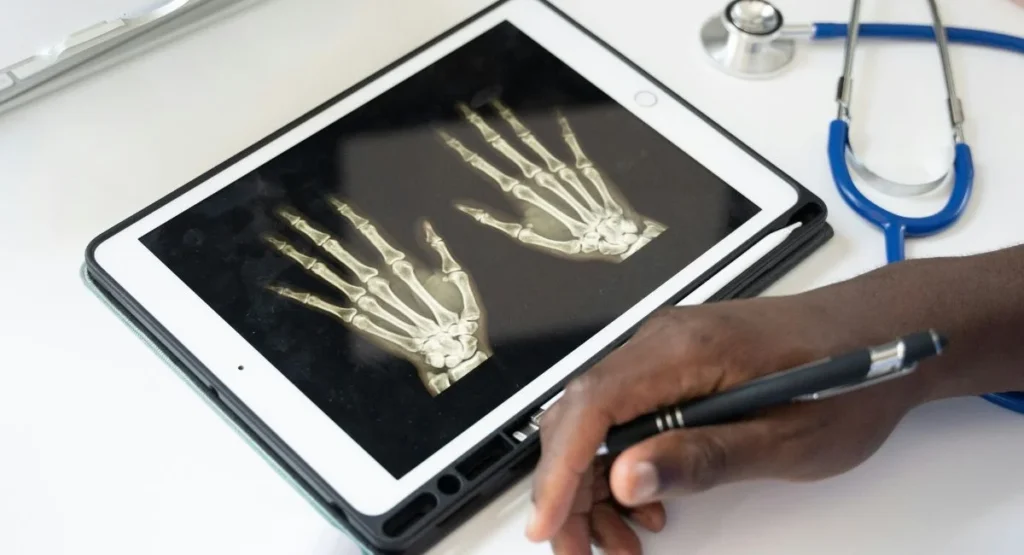When launching new healthcare practices, one of the most important goals is establishing a strong relationship with your patients from day one. But how can you ensure they remain loyal to your clinic? The answer lies in leveraging technology. Specifically, clinic software for new practices is an essential tool for improving patient engagement and overall practice management. But why is it so important, and how can it help transform your practice?
What Makes Clinic Software for New Practices Vital for Patient Engagement?
How Does Clinic Software Help Build Stronger Patient Relationships?
When launching a new healthcare practice, fostering a good relationship with patients is essential for success. This relationship is not built overnight, but with the right tools, you can establish trust, improve communication, and ensure a seamless experience for your patients. Clinic software for new practices offers powerful solutions that facilitate patient engagement by automating processes and improving accessibility.
With features like automated appointment reminders, secure messaging, and patient portals, this software helps keep patients informed and involved in their care. Automated reminders reduce missed appointments, while secure communication channels allow patients to ask questions and get timely responses without having to visit the clinic. All these features contribute to creating a positive, patient-centered experience, which is key to retaining patients and enhancing their engagement.
How Can Clinic Software Streamline Appointment Scheduling?
Is Appointment Scheduling Easier with Clinic Management Software?
Appointment scheduling is a core aspect of any healthcare practice, and for new clinics, it can be one of the most challenging areas to manage. Missed appointments, double bookings, and manual scheduling errors can quickly become a problem without an effective system in place.
Clinic software for new practices simplifies appointment management by automating the entire process. Patients can book appointments online at their convenience, choose from available time slots, and even receive automated reminders before their visit. This flexibility not only saves time for both patients and staff but also helps prevent scheduling conflicts, missed appointments, and long wait times.
Moreover, clinic software offers the option to integrate with digital calendars, making it easy to track appointments and ensure optimal patient flow. As a result, your clinic runs more efficiently, and patients feel valued because they can easily schedule their appointments on their terms.
How Does Clinic Software Enhance Communication Between Staff and Patients?
Can Clinic Management Software Improve Communication?
Effective communication is at the heart of patient engagement. Whether it’s answering questions, providing follow-up care, or simply ensuring patients are aware of their treatment plans, communication plays a vital role in the success of any healthcare practice.
Clinic software enables seamless communication between healthcare providers and patients. With features like secure messaging, patients can easily reach out to staff for non-urgent inquiries, prescription refills, or clarification on treatment plans. This level of accessibility makes patients feel more involved in their care and helps prevent misunderstandings that could otherwise lead to frustration or disengagement.
Additionally, these platforms often have integrated communication tools that allow for instant updates on appointment changes, billing details, or test results. All of this contributes to fostering a sense of transparency and trust, both of which are crucial for patient retention.
How Can Clinic Software Improve Patient Data Management?
Why Is Patient Data Management Important for New Healthcare Practices?
Accurate and secure management of patient data is a critical component of modern healthcare. For new practices, keeping track of patient histories, diagnoses, treatments, and other relevant information can become cumbersome without the right tools. This is where clinic software for new practices comes in.
With integrated Electronic Health Records (EHR) and patient data management features, clinic software helps practices organize and store patient information in a centralized, secure system. This not only makes it easier for healthcare providers to access patient histories but also ensures that patient data is protected and compliant with privacy regulations such as HIPAA.
Efficient data management reduces the risk of errors, enables better-informed decision-making, and allows healthcare providers to give more personalized care. Patients, in turn, appreciate knowing that their information is well-organized and protected, which further builds their trust in your clinic.

How Does Clinic Software Foster Continuous Engagement?
Can Clinic Software Help You Engage with Patients Beyond Their Visits?
Patient engagement doesn’t end once the patient leaves the clinic. To truly build a lasting relationship with your patients, you need to continue engaging with them even after their visit. Clinic software for new practices offers a range of features to keep patients involved in their care long after they’ve stepped out the door.
Many clinic software solutions offer automated follow-up messages, reminders for upcoming appointments, or even health tips and educational materials. These tools provide patients with valuable information and prompt them to take an active role in managing their health. Patients who feel supported and informed are more likely to return for follow-up appointments and maintain a long-term relationship with your practice.
Additionally, features such as patient surveys allow you to gain insights into their experience, helping you understand what areas need improvement and what patients appreciate most about your clinic. This constant feedback loop ensures that your practice continues to meet the needs of your patients.
How Can Clinic Software Improve Operational Efficiency?
Does Clinic Management Software Make Healthcare Practices More Efficient?
Managing a new healthcare practice involves juggling multiple responsibilities, from patient care to administrative tasks. Without the right systems in place, this can become overwhelming quickly. Clinic software helps streamline many aspects of practice management, reducing administrative overhead and allowing healthcare providers to focus more on delivering quality care.
By automating tasks such as appointment scheduling, billing, and patient record-keeping, clinic software frees up staff time, which improves overall clinic efficiency. Additionally, many clinic management solutions integrate with other software tools, such as inventory management or financial tracking systems, allowing for a holistic view of your practice’s operations.
This increased efficiency benefits both patients and staff. Patients experience shorter wait times, quicker check-in processes, and faster response times to their inquiries. For your staff, it means less time spent on manual tasks and more time focused on patient care.
How Does Clinic Software Help with Patient Retention?
Why Is Patient Retention Important for New Healthcare Practices?
For any new healthcare practice, building a loyal patient base is crucial to long-term success. Clinic software for new practices can play a significant role in improving patient retention by making it easier for patients to engage with your clinic and receive the care they need.
One of the main ways clinic software boosts retention is by providing personalized experiences for patients. By keeping detailed records of each patient’s health history, preferences, and past treatments, your clinic can tailor care plans and recommendations to meet their unique needs. This personalized approach enhances the patient experience, fostering loyalty and trust.
Additionally, with features such as appointment reminders, follow-up care tracking, and patient education resources, patients are more likely to stay on top of their health and return to your clinic for future visits. Clinic software ensures that no patient falls through the cracks and that their experience remains positive from start to finish.
How Does Clinic Software Support Marketing Efforts for New Practices?
Can Clinic Management Software Assist with Marketing and Patient Outreach?
Marketing is essential for attracting new patients to your clinic, especially in the early stages of your practice’s development. Clinic software offers a variety of tools that can help with patient outreach and marketing efforts.
For example, many clinic management systems allow you to segment your patient database by factors such as age, treatment history, or frequency of visits. This segmentation enables you to send targeted emails or messages about relevant services, promotions, or health tips. Additionally, automated reminders about check-ups, vaccinations, or preventive care can help keep patients engaged with your clinic and increase patient retention.
By leveraging these marketing tools, you can enhance your clinic’s visibility and attract a broader patient base while maintaining an ongoing relationship with existing patients.
Conclusion: Clinic Software as the Key to Patient Engagement and Practice Success
For new healthcare practices, patient engagement is more than just a buzzword—it’s a crucial component of long-term success. Clinic software for new practices offers the tools and features needed to improve every aspect of patient engagement, from seamless appointment scheduling and communication to personalized care and continuous follow-up.
By automating administrative tasks, streamlining data management, and improving communication, clinic software empowers both staff and patients. It allows new practices to provide exceptional care while running efficiently, leading to greater patient satisfaction, retention, and ultimately, the growth of the practice.
Investing in clinic software isn’t just about improving day-to-day operations; it’s about creating a patient-centric experience that fosters trust, loyalty, and long-term success. As your practice grows, the right software will be an invaluable partner in keeping patients engaged and ensuring your clinic reaches its full potential.
FAQs
1. How can clinic software improve patient engagement?
Clinic software helps improve patient engagement by offering tools like online appointment scheduling, automated reminders, secure messaging, and patient portals. These features make it easier for patients to stay informed, communicate with staff, and manage their health.
2. How does clinic software streamline appointment scheduling?
Clinic software automates the scheduling process, allowing patients to book appointments online, receive automated reminders, and choose available time slots. This reduces administrative workload and minimizes scheduling conflicts.
3. Can clinic software help with patient retention?
Yes, clinic software enhances patient retention by providing personalized care, follow-up reminders, and continuous engagement through patient surveys, educational materials, and automated messages.
4. How does clinic software support marketing efforts?
Clinic software allows for patient segmentation, targeted messaging, and automated reminders, which help attract new patients and maintain engagement with existing ones. These tools can also be used for promotions and outreach.
5. Is clinic software secure?
Yes, most clinic management software solutions prioritize security by using encryption and other security measures to protect patient data. They are also designed to comply with privacy regulations like HIPAA.



